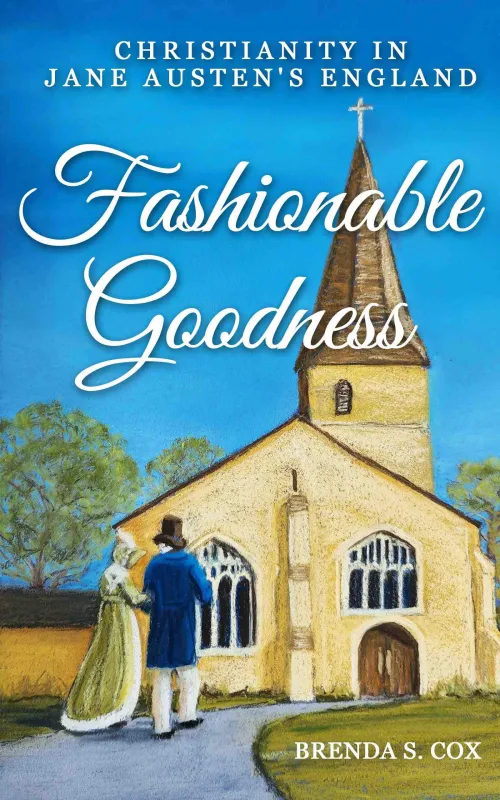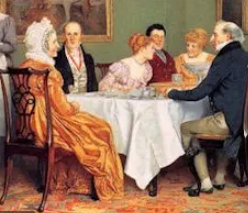On July 18, 1817 Jane Austen died at the age of 41 of Addison’s disease, a diagnosis that remains largely disputed. Her last hours are described by her grieving sister Cassandra to Fanny Knight, Jane’s beloved niece. Other posts that Tony Grant and I have written on the topic sit below.
My dearest Fanny,
Doubly dear to me now for her dear sake whom we have lost. She did love you most sincerely, and never shall I forget the proofs of love you gave her during her illness in writing those kind, amusing letters at a time when I know your feelings would have dictated so different a style. Take the only reward I can give you in the assurance that your benevolent purpose was answered; you did contribute to her enjoyment.
Even your last letter afforded pleasure. I merely cut the seal and gave it to her; she opened it and read it herself, afterwards she gave it to me to read, and then talked to me a little and not uncheerfully of its contents, but there was then a languor about her which prevented her taking the same interest in anything she had been used to do.
Since Tuesday evening, when her complaint returned, there was a visible change, she slept more and much more comfortably; indeed, during the last eight-and-forty hours she was more asleep than awake. Her looks altered and she fell away, but I perceived no material diminution of strength, and, though I was then hopeless of a recovery, I had no suspicion how rapidly my loss was approaching.
I have lost a treasure, such a sister, such a friend as never can have been surpassed. She was the sun of my life, the gilder of every pleasure, the soother of every sorrow; I had not a thought concealed from her, and it is as if I had lost a part of myself. I loved her only too well — not better than she deserved, but I am conscious that my affection for her made me sometimes unjust to and negligent of others; and I can acknowledge, more than as a general principle, the justice of the Hand which has struck this blow.
You know me too well to be at all afraid that I should suffer materially from my feelings; I am perfectly conscious of the extent of my irreparable loss, but I am not at all overpowered and very little indisposed, nothing but what a short time, with rest and change of air, will remove. I thank God that I was enabled to attend her to the last, and amongst my many causes of self-reproach I have not to add any wilful neglect of her comfort.
She felt herself to be dying about half-an-hour before she became tranquil and apparently unconscious. During that half-hour was her struggle, poor soul! She said she could not tell us what she suffered, though she complained of little fixed pain. When I asked her if there was anything she wanted, her answer was she wanted nothing but death, and some of her words were: “God grant me patience, pray for me, oh, pray for me!” Her voice was affected, but as long as she spoke she was intelligible.
I hope I do not break your heart, my dearest Fanny, by these particulars; I mean to afford you gratification whilst I am relieving my own feelings. I could not write so to anybody else; indeed you are the only person I have written to at all, excepting your grandmamma — it was to her, not your Uncle Charles, I wrote on Friday.
Immediately after dinner on Thursday I went into the town to do an errand which your dear aunt was anxious about. I returned about a quarter before six and found her recovering from faintness and oppression; she got so well as to be able to give me a minute account of her seizure, and when the clock struck six she was talking quietly to me.
I cannot say how soon afterwards she was seized again with the same faintness, which was followed by the sufferings she could not describe; but Mr. Lyford had been sent for, had applied something to give her ease, and she was in a state of quiet insensibility by seven o’clock at the latest. From that time till half-past four, when she ceased to breathe, she scarcely moved a limb, so that we have every reason to think, with gratitude to the Almighty, that her sufferings were over. A slight motion of the head with every breath remained till almost the last. I sat close to her with a pillow in my lap to assist in supporting her head, which was almost off the bed, for six hours; fatigue made me then resign my place to Mrs. J. A. for two hours and a-half, when I took it again, and in about an hour more she breathed her last.
I was able to close her eyes myself, and it was a great gratification to me to render her those last services. There was nothing convulsed which gave the idea of pain in her look; on the contrary, but for the continual motion of the head she gave one the idea of a beautiful statue, and even now, in her coffin, there is such a sweet, serene air over her countenance as is quite pleasant to contemplate.
This day, my dearest Fanny, you have had the melancholy intelligence, and I know you suffer severely, but I likewise know that you will apply to the fountain-head for consolation, and that our merciful God is never deaf to such prayers as you will offer.
The last sad ceremony is to take place on Thursday morning; her dear remains are to be deposited in the cathedral. It is a satisfaction to me to think that they are to lie in a building she admired so much; her precious soul, I presume to hope, reposes in a far superior mansion. May mine one day be re-united to it!
Your dear papa, your Uncle Henry, and Frank and Edwd. Austen, instead of his father, will attend. I hope they will none of them suffer lastingly from their pious exertions. The ceremony must be over before ten o’clock, as the cathedral service begins at that hour, so that we shall be at home early in the day, for there will be nothing to keep us here afterwards.
Your Uncle James came to us yesterday, and is gone home to-day. Uncle H. goes to Chawton to-morrow morning; he has given every necessary direction here, and I think his company there will do good. He returns to us again on Tuesday evening.
I did not think to have written a long letter when I began, but I have found the employment draw me on, and I hope I shall have been giving you more pleasure than pain. Remember me kindly to Mrs. J. Bridges (I am so glad she is with you now), and give my best love to Lizzie and all the others.
I am, my dearest Fanny,
Most affectionately yours,
Cass. Eliz. Austen
More on the topic:


























